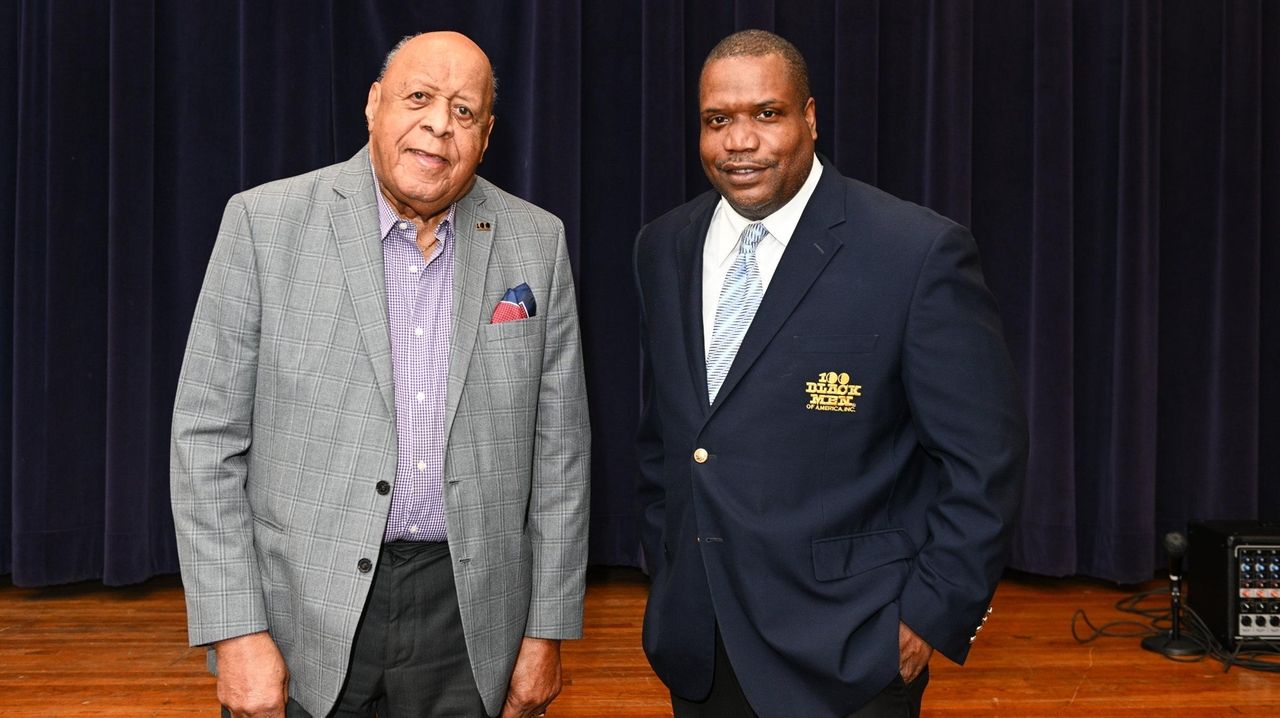Walked past a hall full of children practicing martial arts, two dozen adults gathered in a Hempstead auditorium on Wednesday night for a conversation that attendees say is often avoided: what are the barriers to mental health care for the men of the black community of Long Island, and what are the paths through them?
Some of these barriers are complicated by culture, others involve trust; but overcoming the barriers to better mental health for black men starts with communication, according to panelists at the Kennedy Memorial Park event.
“The main thing I’m excited about right now is what our theme is, let’s talk about it,” said Pastor Noel Simms, vice president of education for 100 East New York Black Men and moderator. of the event.
“If you feel down, you feel down,” Simms said, “don’t keep it to yourself, let’s talk.”
The discussion was hosted by 100 Black Men from East New York, who billed the event as “Let’s Talk Mental Health.”
Panelists included Don Sinkfield, vice president of Melville-based New Hope mental health counseling services; Reverend Sedgwick Easley of Hempstead Union Baptist Church; nutritionist John Jabari Michel; Phil Andrews, president of 100 Black Men of Eastern New York, and Clinton Clovis, president of New Hope Mental Health Counseling Services.
“You find that black men, because of the culture, prefer to talk about things with a friend, a family member, or go to church, go to the hairdresser,” said Clovis, who is originally from West Indian. “Anywhere except walking into a room where they have to sit and talk about the issues, because of this feeling that they can deal with them without outside intervention.”
Created in the 1960s, 100 Black Men has 110 chapters, Andrews said. The organization focuses on the areas of mentoring, education, health and wellness, and economic empowerment.
Clovis, in an earlier phone interview, said it’s important that individuals have access to therapists who are like them, understand their culture and speak their language. Overall, Clovis said, for a variety of factors, there is resistance in the black male community to seeking mental health treatment.
There’s “the idea that as a man – as a black man – we don’t need help, do we, to deal with the things that affect us,” he said. he declared. “Black men tend to have this harsh outlook on life.”
In many cases, he said, that means internalizing feelings and dealing with anxiety and depression.
“Stigma is one of the building blocks that acts as a barrier to effective treatment,” Clovis said. “The very idea of trusting a mental health provider has been problematic for the black community.”
The pervasive and elusive nature of mental health issues also calls for close attention to physical experience, Clovis said.
“Pay attention to what your body is telling you when you receive a pink slip from your employer. Pay attention to what your body is telling you when you are food or financially insecure,” he said. “A lot of times as a community, because we don’t have the resources in place, we choose unhealthy ways to deal with it.”
